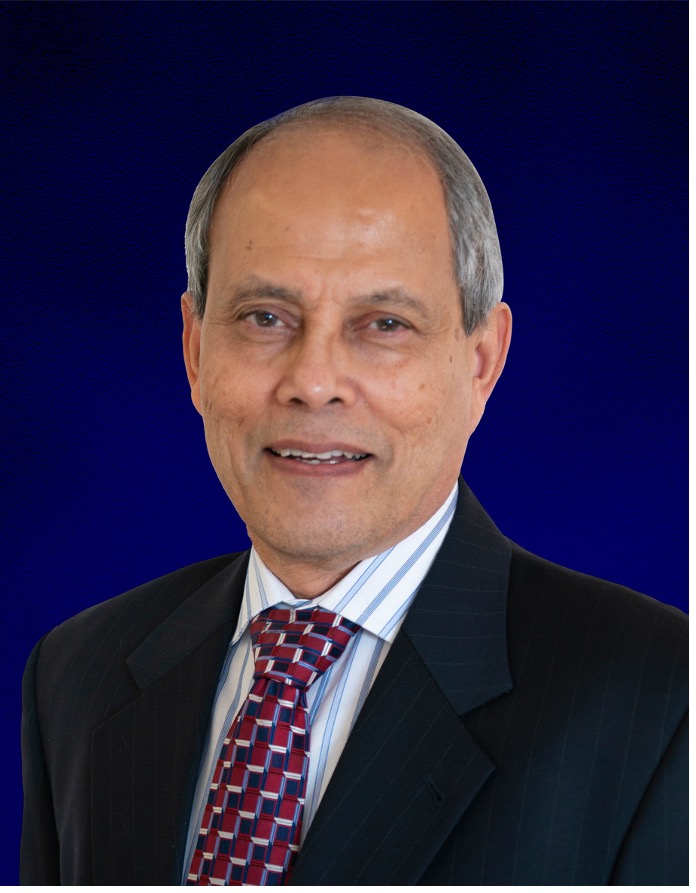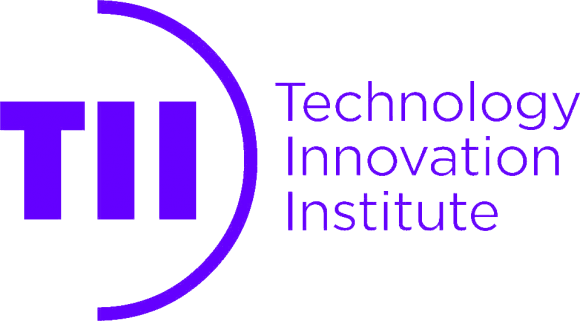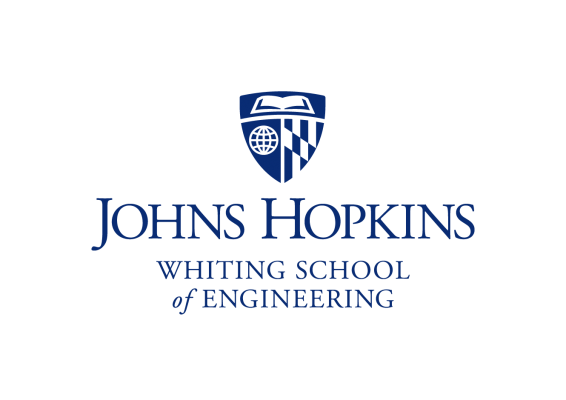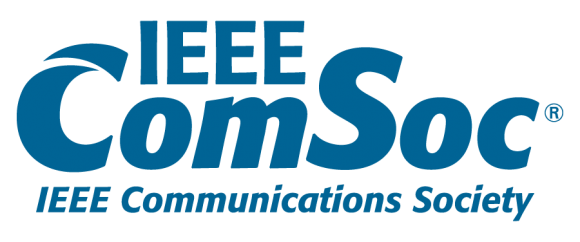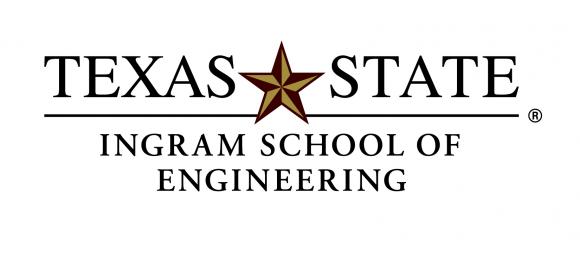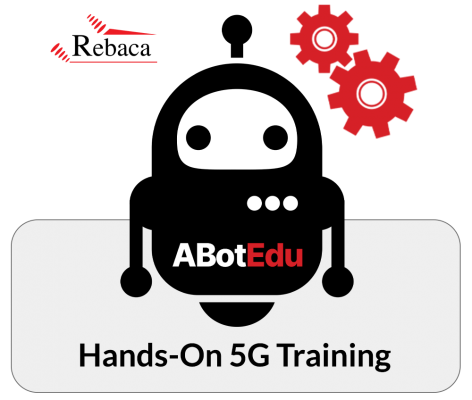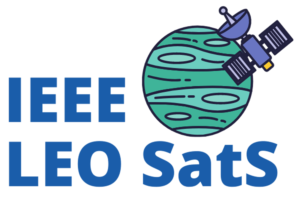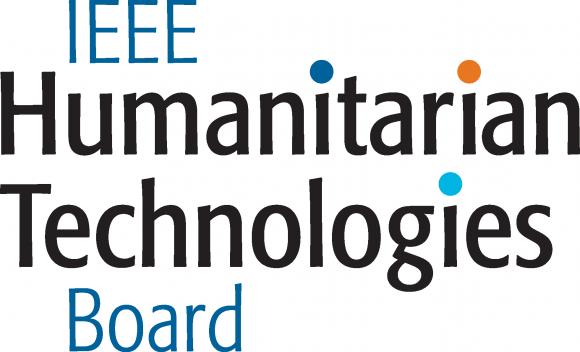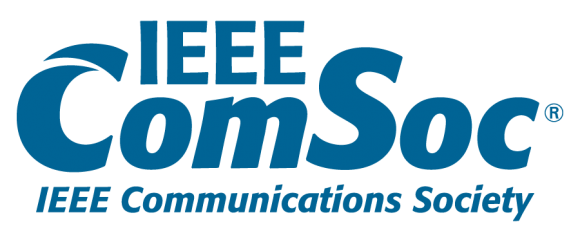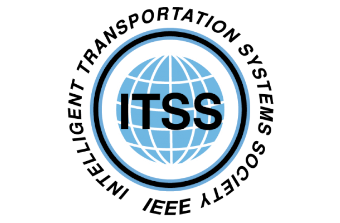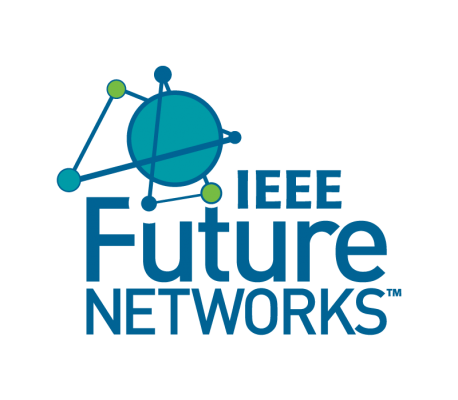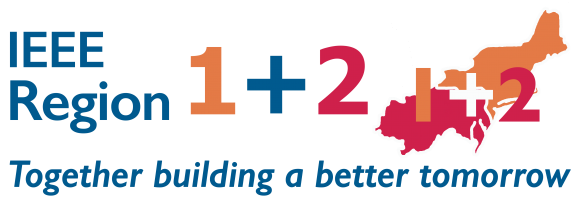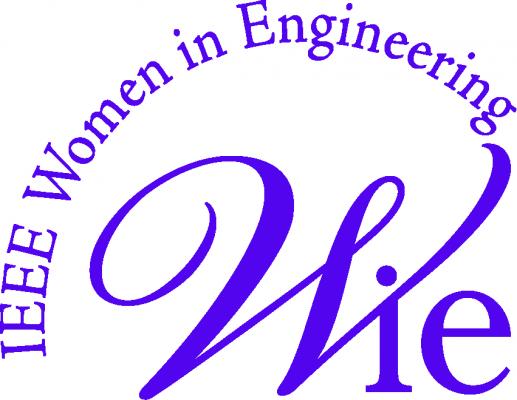Keynote: Vint Cerf, Vice President and Chief Internet Evangelist Google
Short Bio
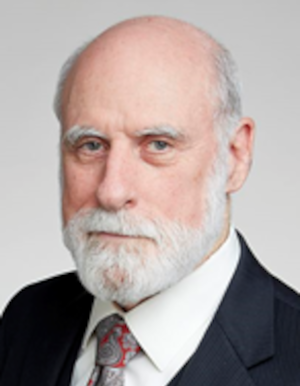 Vinton G. Cerf is vice president and Chief Internet Evangelist for Google. He is the co-designer of the TCP/IP protocols and the architecture of the Internet. He has served in executive positions at ICANN, the Internet Society, MCI, the Corporation for National Research Initiatives and the Defense Advanced Research Projects Agency. A former Stanford Professor and former member of the US National Science Board, he is also the past President of the Association for Computing Machinery and serves in advisory capacities at NIST, DOE, NSF and NASA. He earned his B.S. in mathematics at Stanford and M.S. and Ph.D. degrees in computer science at Stanford. He is a member of both the US National Academies of Science and Engineering. Cerf is a recipient of numerous awards for his work, including the US Presidential Medal of Freedom, US National Medal of Technology, the Queen Elizabeth Prize for Engineering, the Prince of Asturias Award, the Tunisian National Medal of Science, the Japan Prize, the Charles Stark Draper award, the ACM Turing Award, the Marconi Prize, the Legion d’Honneur and the Franklin Medal. He is a Foreign Member of the British Royal Society and Swedish Academy of Engineering and holds 29 honorary degrees. He is a member of the Worshipful Company of Information Technologists and the Worshipful Company of Stationers.
Vinton G. Cerf is vice president and Chief Internet Evangelist for Google. He is the co-designer of the TCP/IP protocols and the architecture of the Internet. He has served in executive positions at ICANN, the Internet Society, MCI, the Corporation for National Research Initiatives and the Defense Advanced Research Projects Agency. A former Stanford Professor and former member of the US National Science Board, he is also the past President of the Association for Computing Machinery and serves in advisory capacities at NIST, DOE, NSF and NASA. He earned his B.S. in mathematics at Stanford and M.S. and Ph.D. degrees in computer science at Stanford. He is a member of both the US National Academies of Science and Engineering. Cerf is a recipient of numerous awards for his work, including the US Presidential Medal of Freedom, US National Medal of Technology, the Queen Elizabeth Prize for Engineering, the Prince of Asturias Award, the Tunisian National Medal of Science, the Japan Prize, the Charles Stark Draper award, the ACM Turing Award, the Marconi Prize, the Legion d’Honneur and the Franklin Medal. He is a Foreign Member of the British Royal Society and Swedish Academy of Engineering and holds 29 honorary degrees. He is a member of the Worshipful Company of Information Technologists and the Worshipful Company of Stationers.
Keynote: MÉROUANE DEBBAH, TECHNOLOGY INNOVATION INSTITUTE, UAE
Title: Large Language Models for Telecom: the next big thing?
Abstract: Large Language Models (LLMs) have shown remarkable success in natural language processing (NLP) tasks, such as language translation, text summarization, and sentiment analysis. They can also help in identifying network faults, improving network security, and facilitating spectrum sharing. LLM-based solutions can be trained on large-scale datasets to capture the heterogeneity and diversity of wireless networks. These models can be deployed on resource-limited devices, such as smartphones, to provide intelligent wireless services. Based on our recent announcement of FALCON LLM in March 2023 (https://www.itp.net/emergent-tech/uae-owned-ai-language-model-outperforms-chatgpt3), which is a foundational large language model (LLM) with 40 billion parameters, outperforming GPT 3, developed by the AI and Digital Science Research Center at TII, we will discuss our recent progress on LLM features and the potential of FALCON LLM in enabling intelligent wireless communication systems.
Short Bio
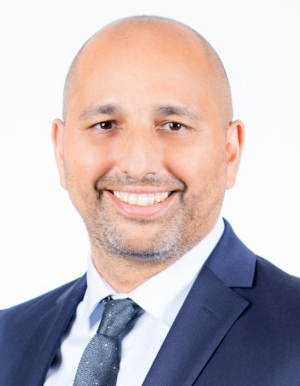 Mérouane Debbah is Chief Researcher at the Technology Innovation Institute in Abu Dhabi. He is a Professor at Centralesupelec (France) and an Adjunct Professor with the Department of Machine Learning at the Mohamed Bin Zayed University of Artificial Intelligence in Abu Dhabi. He received the M.Sc. and Ph.D. degrees from the Ecole Normale Supérieure Paris-Saclay, France. He was with Motorola Labs, Saclay, France, from 1999 to 2002, and then with the Vienna Research Center for Telecommunications, Vienna, Austria, until 2003. From 2003 to 2007, he was an Assistant Professor with the Mobile Communications Department, Institut Eurecom, Sophia Antipolis, France. In 2007, he was appointed Full Professor at CentraleSupelec, Gif-sur-Yvette, France. From 2007 to 2014, he was the Director of the Alcatel-Lucent Chair on Flexible Radio. From 2014 to 2021, he was Vice-President of the Huawei France Research Center. He was jointly the director of the Mathematical and Algorithmic Sciences Lab as well as the director of the Lagrange Mathematical and Computing Research Center. Since 2021, he is leading the AI & Digital Science Research centers at the Technology Innovation Institute. He has managed 8 EU projects and more than 24 national and international projects. His research interests lie in fundamental mathematics, algorithms, statistics, information, and communication sciences research. He holds more than 40 patents. He is an IEEE Fellow, a WWRF Fellow, a Eurasip Fellow, an AAIA Fellow, an Institut Louis Bachelier Fellow and a Membre émérite SEE. He was a recipient of the ERC Grant MORE (Advanced Mathematical Tools for Complex Network Engineering) from 2012 to 2017. He was a recipient of the Mario Boella Award in 2005, the IEEE Glavieux Prize Award in 2011, the Qualcomm Innovation Prize Award in 2012, the 2019 IEEE Radio Communications Committee Technical Recognition Award and the 2020 SEE Blondel Medal. He received more than 25 best paper awards, among which the 2007 IEEE GLOBECOM Best Paper Award, the Wi-Opt 2009 Best Paper Award, the 2010 Newcom++ Best Paper Award, the WUN CogCom Best Paper 2012 and 2013 Award, the 2014 WCNC Best Paper Award, the 2015 ICC Best Paper Award, the 2015 IEEE Communications Society Leonard G. Abraham Prize, the 2015 IEEE Communications Society Fred W. Ellersick Prize, the 2016 IEEE Communications Society Best Tutorial Paper Award, the 2016 European Wireless Best Paper Award, the 2017 Eurasip Best Paper Award, the 2018 IEEE Marconi Prize Paper Award, the 2019 IEEE Communications Society Young Author Best Paper Award, the 2021 Eurasip Best Paper Award, the 2021 IEEE Marconi Prize Paper Award, the 2022 IEEE Communications Society Outstanding Paper Award, the 2022 ICC Best paper Award, the 2022 IEEE GLOBECOM Best Paper Award, 2022 IEEE TAOS TC Best GCSN Paper Award, the 2022 IEEE International Conference on Metaverse Best Paper Award as well as the Valuetools 2007, Valuetools 2008, CrownCom 2009, Valuetools 2012, SAM 2014, and 2017 IEEE Sweden VT-COM-IT Joint Chapter best student paper awards. He is an Associate Editor-in-Chief of the journal Random Matrix: Theory and Applications. He was an Associate Area Editor and Senior Area Editor of the IEEE TRANSACTIONS ON SIGNAL PROCESSING from 2011 to 2013 and from 2013 to 2014, respectively. From 2021 to 2022, he served as an IEEE Signal Processing Society Distinguished Industry Speaker.
Mérouane Debbah is Chief Researcher at the Technology Innovation Institute in Abu Dhabi. He is a Professor at Centralesupelec (France) and an Adjunct Professor with the Department of Machine Learning at the Mohamed Bin Zayed University of Artificial Intelligence in Abu Dhabi. He received the M.Sc. and Ph.D. degrees from the Ecole Normale Supérieure Paris-Saclay, France. He was with Motorola Labs, Saclay, France, from 1999 to 2002, and then with the Vienna Research Center for Telecommunications, Vienna, Austria, until 2003. From 2003 to 2007, he was an Assistant Professor with the Mobile Communications Department, Institut Eurecom, Sophia Antipolis, France. In 2007, he was appointed Full Professor at CentraleSupelec, Gif-sur-Yvette, France. From 2007 to 2014, he was the Director of the Alcatel-Lucent Chair on Flexible Radio. From 2014 to 2021, he was Vice-President of the Huawei France Research Center. He was jointly the director of the Mathematical and Algorithmic Sciences Lab as well as the director of the Lagrange Mathematical and Computing Research Center. Since 2021, he is leading the AI & Digital Science Research centers at the Technology Innovation Institute. He has managed 8 EU projects and more than 24 national and international projects. His research interests lie in fundamental mathematics, algorithms, statistics, information, and communication sciences research. He holds more than 40 patents. He is an IEEE Fellow, a WWRF Fellow, a Eurasip Fellow, an AAIA Fellow, an Institut Louis Bachelier Fellow and a Membre émérite SEE. He was a recipient of the ERC Grant MORE (Advanced Mathematical Tools for Complex Network Engineering) from 2012 to 2017. He was a recipient of the Mario Boella Award in 2005, the IEEE Glavieux Prize Award in 2011, the Qualcomm Innovation Prize Award in 2012, the 2019 IEEE Radio Communications Committee Technical Recognition Award and the 2020 SEE Blondel Medal. He received more than 25 best paper awards, among which the 2007 IEEE GLOBECOM Best Paper Award, the Wi-Opt 2009 Best Paper Award, the 2010 Newcom++ Best Paper Award, the WUN CogCom Best Paper 2012 and 2013 Award, the 2014 WCNC Best Paper Award, the 2015 ICC Best Paper Award, the 2015 IEEE Communications Society Leonard G. Abraham Prize, the 2015 IEEE Communications Society Fred W. Ellersick Prize, the 2016 IEEE Communications Society Best Tutorial Paper Award, the 2016 European Wireless Best Paper Award, the 2017 Eurasip Best Paper Award, the 2018 IEEE Marconi Prize Paper Award, the 2019 IEEE Communications Society Young Author Best Paper Award, the 2021 Eurasip Best Paper Award, the 2021 IEEE Marconi Prize Paper Award, the 2022 IEEE Communications Society Outstanding Paper Award, the 2022 ICC Best paper Award, the 2022 IEEE GLOBECOM Best Paper Award, 2022 IEEE TAOS TC Best GCSN Paper Award, the 2022 IEEE International Conference on Metaverse Best Paper Award as well as the Valuetools 2007, Valuetools 2008, CrownCom 2009, Valuetools 2012, SAM 2014, and 2017 IEEE Sweden VT-COM-IT Joint Chapter best student paper awards. He is an Associate Editor-in-Chief of the journal Random Matrix: Theory and Applications. He was an Associate Area Editor and Senior Area Editor of the IEEE TRANSACTIONS ON SIGNAL PROCESSING from 2011 to 2013 and from 2013 to 2014, respectively. From 2021 to 2022, he served as an IEEE Signal Processing Society Distinguished Industry Speaker.
Keynote: Nada Golmie, National Institute of Standards and Technology (NIST), USA
Short Bio
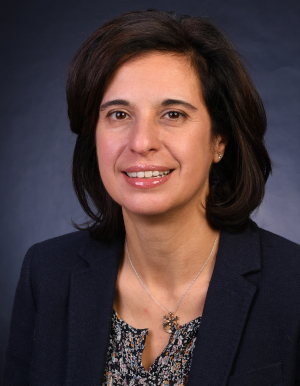 Nada Golmie received her Ph.D. in computer science from the University of Maryland at College Park. Since 1993, she has been a research engineer at the National Institute of Standards and Technology (NIST). From 2014 until 2022, she served as the chief for Wireless Networks Division at NIST. She is an IEEE Fellow, and a NIST Fellow in the Communications Technology Laboratory. Her research in media access control and protocols for wireless networks led to over 200 technical papers presented at professional conferences, journals, and contributed to international standard organizations and industry-led consortia. She is the author of “Coexistence in Wireless Networks: Challenges and System-level Solutions in the Unlicensed Bands," published by Cambridge University Press (2006). She leads several projects related to the modeling and evaluation of future-generation wireless systems and protocols and serves as the NextG Channel Model Alliance chair.
Nada Golmie received her Ph.D. in computer science from the University of Maryland at College Park. Since 1993, she has been a research engineer at the National Institute of Standards and Technology (NIST). From 2014 until 2022, she served as the chief for Wireless Networks Division at NIST. She is an IEEE Fellow, and a NIST Fellow in the Communications Technology Laboratory. Her research in media access control and protocols for wireless networks led to over 200 technical papers presented at professional conferences, journals, and contributed to international standard organizations and industry-led consortia. She is the author of “Coexistence in Wireless Networks: Challenges and System-level Solutions in the Unlicensed Bands," published by Cambridge University Press (2006). She leads several projects related to the modeling and evaluation of future-generation wireless systems and protocols and serves as the NextG Channel Model Alliance chair.
Keynote: Thyaga Nandagopal, National Science Foundation (NSF), USA
Talk Title: The role for Open RAN and open-source software for Future Networks
Abstract: While traditional communication networks have seen a significant evolution in architecture and design through the advent of software-defined networks, wireless networks are similarly seeing a transformation come about using open-RAN and related principles. In this talk, we will go over the broader notion of what open-source means for next-generation communication networks, both wired and wireless, and identify the areas where more research and development is needed.
Short Bio
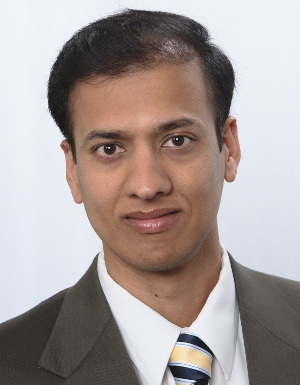 Thyaga Nandagopal is the Division Director of the Division of Innovation and Technology Ecosystems in the Directorate of Technology, Innovation and Partnerships at the National Science Foundation. In this role, with an annual budget of over $350M, he oversees NSF investments in convergent and translational research in emerging technologies and in building inclusive innovation ecosystems around the country. Dr. Nandagopal is the co-chair of the NSF-wide Quantum Leap Steering Committee, that coordinates NSF investments in inter-disciplinary research in quantum computing, communications and sensing. He also serves on the NSF-wide Semiconductor Steering Committee that coordinates NSF investments in semiconductors, microelectronics and packaging. Prior to his current role, he was the Deputy Division Director of the Computing and Communication Foundations (CCF) Division in the Directorate of Computer & Information Science and Engineering (CISE) at the NSF, where he oversaw the division's investments in the theory and foundations of computing systems and communications technologies, with an annual budget of nearly $200M. His current interests are in research policy, partnerships, quantum computing, artificial intelligence and advanced wireless networks (beyond 5G). He has brought in over $150M from external partners into NSF-funded research programs. He previously served as a Program Director at the NSF in the Networking Technologies and Systems (NeTS) program where he started the Platforms for Advanced Wireless Research program, a $100M effort over the 2017 - 2024 timeframe involving 30+ industry partners. He holds over 30 patents on software-defined networks and wireless technologies. He is an IEEE Fellow, and holds a Ph.D. degree in Electrical Engineering from the University of Illinois at Urbana-Champaign.
Thyaga Nandagopal is the Division Director of the Division of Innovation and Technology Ecosystems in the Directorate of Technology, Innovation and Partnerships at the National Science Foundation. In this role, with an annual budget of over $350M, he oversees NSF investments in convergent and translational research in emerging technologies and in building inclusive innovation ecosystems around the country. Dr. Nandagopal is the co-chair of the NSF-wide Quantum Leap Steering Committee, that coordinates NSF investments in inter-disciplinary research in quantum computing, communications and sensing. He also serves on the NSF-wide Semiconductor Steering Committee that coordinates NSF investments in semiconductors, microelectronics and packaging. Prior to his current role, he was the Deputy Division Director of the Computing and Communication Foundations (CCF) Division in the Directorate of Computer & Information Science and Engineering (CISE) at the NSF, where he oversaw the division's investments in the theory and foundations of computing systems and communications technologies, with an annual budget of nearly $200M. His current interests are in research policy, partnerships, quantum computing, artificial intelligence and advanced wireless networks (beyond 5G). He has brought in over $150M from external partners into NSF-funded research programs. He previously served as a Program Director at the NSF in the Networking Technologies and Systems (NeTS) program where he started the Platforms for Advanced Wireless Research program, a $100M effort over the 2017 - 2024 timeframe involving 30+ industry partners. He holds over 30 patents on software-defined networks and wireless technologies. He is an IEEE Fellow, and holds a Ph.D. degree in Electrical Engineering from the University of Illinois at Urbana-Champaign.
Keynote: Saifur Rahman, 2023 IEEE President & CEO
Short Bio
Saifur Rahman is the founding director of the Advanced Research Institute at Virginia Tech, USA, where he is the Joseph R. Loring Professor of Electrical and Computer Engineering. He also directs the Center for Energy and the Global Environment at the university. He is a Life Fellow of the IEEE and an IEEE Millennium Medal winner. He was the president of the IEEE Power and Energy Society (PES) for 2018 and 2019. He is the founding editor-in-chief of the IEEE Electrification Magazine and the IEEE Transactions on Sustainable Energy. He has published more than 160 journal papers and has made more than 500 conference and invited presentations. His h-index is 60 with over eighteen thousand citations. In 2006, he served on the IEEE Board of Directors as the Vice President for Publication Services and Products. He is a distinguished lecturer for IEEE PES and has lectured on renewable energy, energy efficiency, smart grid, energy internet, blockchain, and IoT sensor integration in more than 30 countries.
He is the founder of BEM Controls, LLC, a Virginia (USA)-based software company providing building energy management solutions. He served as the chair of the US National Science Foundation Advisory Committee for International Science and Engineering from 2010 to 2013. His research at Virginia Tech has been funded by Duke Energy, Tokyo Electric Power Company, the US National Science Foundation, the US Department of Defense, the US Department of Energy, and the State of Virginia. He has a PhD in electrical engineering from Virginia Tech.
Keynote: Khaled B. Letaief, New Bright Professor of Engineering and Chair Professor, HKUST, Hong Kong
Title: AI-Empowered 6G Networks for an Intelligent and Connected World
Abstract: We are witnessing an exciting time for future wireless networks with the emergence of 6G. In contrast to previous generations, 6G will revolutionize wireless from “connected things” to “connected intelligence”, enabling interconnections between humans, things, and intelligence within a deeply intertwined and hyper-connected cyber-physical world, characterized by the integration of communications, intelligence, sensing, control, and computing. To achieve this, 6G must overcome significant challenges such as extremely low latency, massive near-instantaneous connectivity, and an artificial intelligence network hierarchy with machine learning capability. In this talk, we begin by introducing 6G vision, challenges, and opportunities. We will then describe some of the important technologies and innovations ranging from air technologies and network design to services that are needed to meet the demands of future wireless networks and guarantee broadband ubiquitous communications of all things, including human-to-machine and machine-to-machine, for a connected world. Of particular interest is the use of artificial intelligence and machine learning for supporting intelligent networks and optimizing resource allocation problems in wireless networks.
Short Bio
Dr. Letaief is an internationally recognized leader in wireless communications and networks with research interest in artificial intelligence, mobile cloud and edge computing, tactile Internet, and 6G systems. He is a Member of the United States National Academy of Engineering, Fellow of IEEE, Fellow of Hong Kong Institution of Engineers, and Member of the Hong Kong Academy of Engineering Sciences. He is also recognized by Thomson Reuters as an ISI Highly Cited Researcher with over 48,300 citations and h-index of 97 and was listed among the 2020 top 30 of AI 2000 Internet of Things Most Influential Scholars.
He is the founding Editor-in-Chief of the prestigious IEEE Transactions on Wireless Communications. He is the recipient of many distinguished awards and honors including the 2022 IEEE Edwin Howard Armstrong Achievement Award; 2021 IEEE Technical Committee on Cognitive Networks Recognition Award; 2021 IEEE Communications Society Best Survey Paper Award; 2019 IEEE Communications Society and Information Theory Society Joint Paper Award; 2018 IEEE Signal Processing Society Young Author Best Paper Award, 2016 IEEE Marconi Prize Paper Award in Wireless Communications, 2011 IEEE Communications Society Harold Sobol Award, 2010 Purdue University Outstanding Electrical and Computer Engineer Award; and 2007 IEEE Communications Society Joseph LoCicero Publications Exemplary Award.
He is well recognized for his dedicated service to professional societies and in particular IEEE where he has served in many leadership positions. These include the IEEE Communications Society President, the world's leading organization for communications professionals with headquarter in New York City and members in 162 countries. Since 1993, he has been with HKUST (ranked No. 20 worldwide according to the 2021 QS World’s Top Universities in Engineering & Technology) where he has held many administrative positions, including Acting Provost, Dean of Engineering, and Head of the Electronic and Computer Engineering department. He is currently serving as member of the IEEE Board of Directors.
Dr. Letaief received the BS degree with distinction, MS and Ph.D. Degrees in Electrical Engineering from Purdue University at West Lafayette, Indiana, USA.
Keynote: Dawn Manga, Associate Director, Priority Communications Services Subdivision
Short Bio
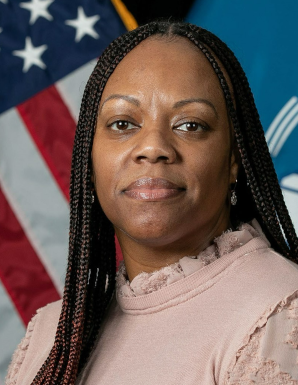 Ms. Dawn Manga is the Associate Director, Priority Communications Services Subdivision. She also serves as Program Manager of the Next Generation Network Priority Services Phase 1 and Phase 2 Programs and as Deputy Program Manager of the Priority Telecommunications Services Program. In her roles, she leads the nationwide team effort to deliver priority capabilities in communications commercial and government networks in support of Public Safety, Critical Infrastructure and the National Security/Emergency Preparedness (NS/EP) community.
Ms. Dawn Manga is the Associate Director, Priority Communications Services Subdivision. She also serves as Program Manager of the Next Generation Network Priority Services Phase 1 and Phase 2 Programs and as Deputy Program Manager of the Priority Telecommunications Services Program. In her roles, she leads the nationwide team effort to deliver priority capabilities in communications commercial and government networks in support of Public Safety, Critical Infrastructure and the National Security/Emergency Preparedness (NS/EP) community.
Prior to joining CISA in October 2020, Ms. Manga was the acting Deputy Director of the Enterprise Security Services Division, as well as the Program Manager of the HSPD-12 Program for the DHS Enterprise. The HSPD-12 Program, a level 3 program, manages the lifecycle of DHS credentials from policy to technical implementation, operations, and logistics. Ms. Manga joined DHS in 2016.
In a previous assignment, she served as a Technology Fellow within the Chief of Naval Operations Strategic Studies Group (CNO SSG) where she worked in strategic planning for the U.S. Navy. Ms. Manga also operated out of the Naval Surface Warfare Center, Panama City Division where she focused on Anti-Terrorism/Force Protection, Intrusion Detection, and Biometric Access. She has also been the lead engineer on various Virtual Perimeter Monitoring System testbeds that are deployed via an interagency agreement with the TSA Intermodal Program Office. In addition, Dawn has a background in sonar and unmanned systems. She worked as a civilian for the U.S. Navy for 10 years prior to joining DHS.
Ms. Manga received a Bachelor of Science degree in Electrical Engineering from the University of South Florida and earned a Master of Science degree in Systems Engineering from the Naval Postgraduate School. She also holds a Project Management Professional (PMP) certification and is a Certified Information Security Manager (CISM).
Thomas W. Rondeau, Principal Director for the FutureG & 5G Office
Office of the Deputy Chief Technology Officer (Science and Technology), Under Secretary of Defense for Research and Engineering
Short Bio
Dr. Tom Rondeau is the Principal Director for the FutureG & 5G Office for the US Department of Defense, serving in the Office of the Undersecretary of Defense for Research and Engineering (OUSD(R&E)). In this role, Dr. Rondeau is responsible for the research, funding, and execution of programs to advance warfighting capabilities using 5G and future-generation wireless technologies.
Before assuming his role as Principal Director of the FutureG & 5G Office, Dr. Rondeau spent more than six years as a Defense Advanced Research Project Agency (DARPA) program manager, where he led efforts that challenged and advanced studies in a variety of warfighting domains, earning him the Distinguished Public Service Medal.
Prior to joining DARPA, Dr. Rondeau was the Project Lead for the GNU Radio project, consulted on wireless communications problem sets, and worked as a visiting researcher with the University of Pennsylvania and as an Adjunct with the IDA Center for Communications Research in Princeton, NJ.
Dr. Rondeau holds a Ph.D. in electrical engineering from Virginia Tech, where his dissertation won the Council of Graduate Schools’ 2007 Outstanding Dissertation Award in math, science, and engineering.
Keynote: Matti Latva-aho, Director for 6G Flagship, University of Oulu, Finland
Title: 6G State of Play in Finland
Abstract: Lots of new ideas for improving the capabilities of 6G compared to 5G have been proposed in various initiatives around the world. Verticals-driven variety of highly different use cases calls for a certain level of flexibility and customization of RAN solutions for efficient deployments. O-RAN is one viable way to make such networks real. At the same time, 6G Metaverse-type applications are pushing researchers to explore the limits of realizable communication systems, including sub-THz radios, metamaterials, and semantic communications, as a few examples. At this point, it is fair to ask which of these new ideas will be mature enough for the commercialization of 6G towards the end of this decade? WRC-23 starting right now has intensified global discussions on 6G spectrum without common views or solutions; interests towards cm wave band and dynamic spectrum sharing concepts seem to be increasing in many parts of the world.
Digital services will be immersively deployed during the 6G era leading to the so-called Society 5.0. They are in a vital role in improving the efficiency of industrial processes as well as many functions of societies around the world. This sets enormous challenges for arranging sufficient and trustworthy coverage and services no matter where the users are. The challenge is not just technical but would require new type of spectrum regulation, ownership of networks as well as context dependent service offerings. What do these mean from technology enablers point of view, what are the necessary changes needed to value chains and ecosystems, how the future networks should be developed to enable truly ubiquitous digital services are some of the key areas covered in this talk. Besides these questions, the talk will briefly introduce some of the key areas of 6G Flagship research programme started at University of Oulu in 2018.
Short Bio
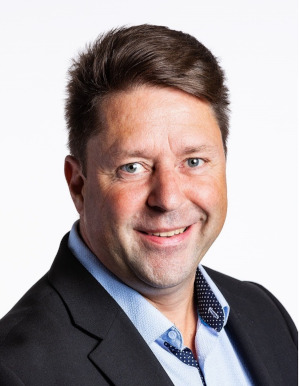 Matti Latva-aho received the M.Sc., Lic.Tech. and Dr. Tech (Hons.) degrees in Electrical Engineering from the University of Oulu, Finland in 1992, 1996 and 1998, respectively. From 1992 to 1993, he was a Research Engineer at Nokia Mobile Phones, Oulu, Finland after which he joined Centre for Wireless Communications (CWC) at the University of Oulu. Prof. Latva-aho was Director of CWC during the years 1998-2006 and Head of Department for Communication Engineering until August 2014. Currently he is professor at the University of Oulu on wireless communications and Director for National 6G Flagship Programme (2018-2026). He is also a Global Fellow with Tokyo University. Prof. Latva-aho has published over 600 conference or journal papers in the field of wireless communications. He received Nokia Foundation Award in 2015 for his achievements in mobile communications research.
Matti Latva-aho received the M.Sc., Lic.Tech. and Dr. Tech (Hons.) degrees in Electrical Engineering from the University of Oulu, Finland in 1992, 1996 and 1998, respectively. From 1992 to 1993, he was a Research Engineer at Nokia Mobile Phones, Oulu, Finland after which he joined Centre for Wireless Communications (CWC) at the University of Oulu. Prof. Latva-aho was Director of CWC during the years 1998-2006 and Head of Department for Communication Engineering until August 2014. Currently he is professor at the University of Oulu on wireless communications and Director for National 6G Flagship Programme (2018-2026). He is also a Global Fellow with Tokyo University. Prof. Latva-aho has published over 600 conference or journal papers in the field of wireless communications. He received Nokia Foundation Award in 2015 for his achievements in mobile communications research.
Keynote: Gerhard Fettweis, Vodafone Chair Professor - TU Dresden, Director & CEO Barkhausen Institute
Title: Addressing the Energy Challenge in Future 6G Cellular Communications
Short Bio
Gerhard P. Fettweis, F’09, earned a Ph.D. under H. Meyr at RWTH Aachen in 1990. After a postdoc at IBM Research, San Jose, he joined TCSI, Berkeley, USA. Since 1994 he is Vodafone Chair Professor at TU Dresden, Germany. Since 2018 he is also founding Scientific Director & CEO of the Barkhausen Institute. He researches wireless transmission and chip design, coordinates 5G++Lab Germany and the German Cluster-for-Future SEMECO. His team spun-out 19 tech and 3 non-tech startups, and he initiated 4 platform companies. Gerhard is member and senator of the German Academy of Sciences (Leopoldina), and member of the German Academy of Engineering (Acatech). He is active in helping organize IEEE conferences.
Keynote: Rob Soni, Vice President, AT&T
Short Bio
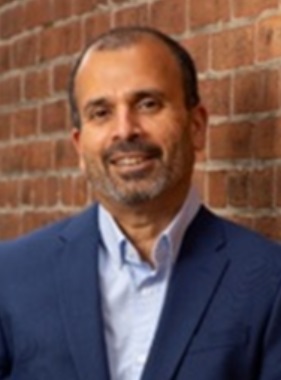 Rob Soni is the Vice president of AT&T. In this role, he is responsible for all aspects of AT&T’s RAN architecture and infrastructure technical road maps for hardware and software, including baseband units, radios, antennas and all ancillary components. In addition, his team oversees certification and development for RAN hardware, software and features. His team drives strategy and contributions to global standards and to technical industry and government organizations.
Rob Soni is the Vice president of AT&T. In this role, he is responsible for all aspects of AT&T’s RAN architecture and infrastructure technical road maps for hardware and software, including baseband units, radios, antennas and all ancillary components. In addition, his team oversees certification and development for RAN hardware, software and features. His team drives strategy and contributions to global standards and to technical industry and government organizations.
Prior to joining AT&T, he led RAN architecture at VMware, overseeing their cloud platform infrastructure technology, including product definition and portfolio strategy. Rob also held technical roles with Nokia Bell Labs, Alcatel-Lucent, and Lucent driving architecture, innovation and strategy for their entire wireless portfolio with a more recent particular focus on cloud RAN and 5G.
Through his many key roles on the product side driving cellular infrastructure, Rob has driven large teams and small teams to provide innovative solutions that have reached significant market penetration across 3G, 4G, and 5G networks in several large wireless operators around the world. He has supported and developed technologies that significantly improved performance, increased resiliency, significantly decreased power consumption and reduced total cost of ownership.
Rob holds a doctorate and master’s degree in electrical engineering from the University of Illinois Urbana-Champaign and a bachelor’s in science in electrical engineering from the University of Cincinnati. He currently lives in Columbus, Ohio, with his wife and three children.
Keynote: Gerhard Fettweis, Vodafone Chair Professor - TU Dresden, Director & CEO Barkhausen Institute
Title: Addressing the Energy Challenge in Future 6G Cellular Communications
Short Bio
Gerhard P. Fettweis, F’09, earned a Ph.D. under H. Meyr at RWTH Aachen in 1990. After a postdoc at IBM Research, San Jose, he joined TCSI, Berkeley, USA. Since 1994 he is Vodafone Chair Professor at TU Dresden, Germany. Since 2018 he is also founding Scientific Director & CEO of the Barkhausen Institute. He researches wireless transmission and chip design, coordinates 5G++Lab Germany and the German Cluster-for-Future SEMECO. His team spun-out 19 tech and 3 non-tech startups, and he initiated 4 platform companies. Gerhard is member and senator of the German Academy of Sciences (Leopoldina), and member of the German Academy of Engineering (Acatech). He is active in helping organize IEEE conferences.
Keynote: Raymond Shen, Director, 5G/6G/Cyber Govt Solutions at Keysight Technologies
Title: Future 5G Technologies for Tactical Comms
Short Bio
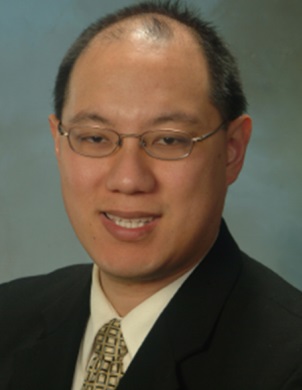 Raymond Shen, PhD is Director of 5G/6G/Cyber Govt Solutions at Keysight Technologies. In this role he leads Keysight's vast portfolio of end-to-end 5G, 6G and OpenRANtest and security solutions for defense and government. He also leads spectrum monitoring solutions, managing solutions that include handheld, outdoor, and modular platforms. He is a frequent speaker at wireless conferences. He has over 24 years of experience in spectrum monitoring, wireless signals, and security, with particular expertise in cellular signals. Shen has a BS EE from Caltech and an MS EE and PhD EE from Stanford University, where his PhD thesis was in the area of neural networks.
Raymond Shen, PhD is Director of 5G/6G/Cyber Govt Solutions at Keysight Technologies. In this role he leads Keysight's vast portfolio of end-to-end 5G, 6G and OpenRANtest and security solutions for defense and government. He also leads spectrum monitoring solutions, managing solutions that include handheld, outdoor, and modular platforms. He is a frequent speaker at wireless conferences. He has over 24 years of experience in spectrum monitoring, wireless signals, and security, with particular expertise in cellular signals. Shen has a BS EE from Caltech and an MS EE and PhD EE from Stanford University, where his PhD thesis was in the area of neural networks.
Keynote presented by: Robert Stephens, Senior 5G/6G Solutions Architect, Keysight Technologies
Title: Digital Twin Ecosystem – Next Generation Communications Systems Modeling
Short Bio
 Bob is a 5G/6G Senior Solution Architect in Keysight’s Aerospace and Defense Government Solutions Group. His background is in wireless hardware and software development, where he has been in product development for his entire career, starting with Motorola's Land Mobile Products Sector, Motorola Cellular Phone Division, Motorola Networks, and most recently Nokia 5G mmWave and Small Cell R&D through Nokia's acquisition of Motorola Networks. At Nokia, he enjoyed bringing new products to market quickly by working with diverse R&D teams, research groups, and customers to resolve difficult problems and deliver high-performance products.
Bob is a 5G/6G Senior Solution Architect in Keysight’s Aerospace and Defense Government Solutions Group. His background is in wireless hardware and software development, where he has been in product development for his entire career, starting with Motorola's Land Mobile Products Sector, Motorola Cellular Phone Division, Motorola Networks, and most recently Nokia 5G mmWave and Small Cell R&D through Nokia's acquisition of Motorola Networks. At Nokia, he enjoyed bringing new products to market quickly by working with diverse R&D teams, research groups, and customers to resolve difficult problems and deliver high-performance products.
Banquet Keynote: Kathleen A Kramer, Professor of Electrical Engineering at the University of San Diego
2024 IEEE President-Elect
Short Bio
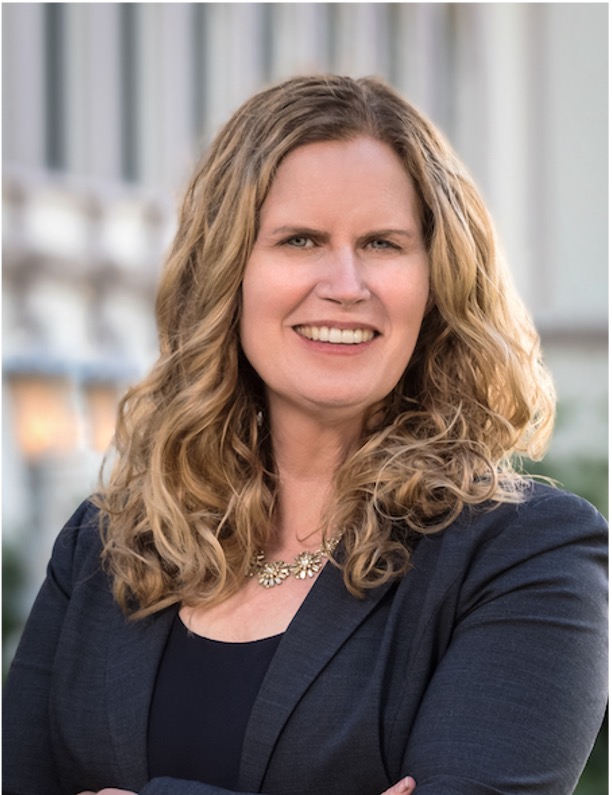 Kathleen A. Kramer is a Professor of Electrical Engineering at the University of San Diego, San Diego, CA, USA. She is a Distinguished Lecturer for IEEE Aerospace & Electronics Systems Society (AESS), and an active member of MTT-S, SPS, and ComSoc, among others. She has worked as a Member of Technical Staff at several companies including ViaSat, Hewlett Packard, and Bell Communications Research. Her technical interests are in multisensor data fusion and applications of neural and fuzzy systems to navigation and data security. She is also internationally known as a leader in accreditation and has been named a Fellow of ABET. She is the 2024 IEEE President Elect, and has a record of leadership across IEEE, including past service as IEEE Director of Region 6 (Western USA), the largest base for IEEE industry members and home to IEEE Rising Stars that connects students and Young Professionals to emerging technology. She received the B.S. degree in electrical engineering magna cum laude with a second major in physics from Loyola Marymount University, and the M.S. and Ph.D. degrees in electrical engineering from the California Institute of Technology.
Kathleen A. Kramer is a Professor of Electrical Engineering at the University of San Diego, San Diego, CA, USA. She is a Distinguished Lecturer for IEEE Aerospace & Electronics Systems Society (AESS), and an active member of MTT-S, SPS, and ComSoc, among others. She has worked as a Member of Technical Staff at several companies including ViaSat, Hewlett Packard, and Bell Communications Research. Her technical interests are in multisensor data fusion and applications of neural and fuzzy systems to navigation and data security. She is also internationally known as a leader in accreditation and has been named a Fellow of ABET. She is the 2024 IEEE President Elect, and has a record of leadership across IEEE, including past service as IEEE Director of Region 6 (Western USA), the largest base for IEEE industry members and home to IEEE Rising Stars that connects students and Young Professionals to emerging technology. She received the B.S. degree in electrical engineering magna cum laude with a second major in physics from Loyola Marymount University, and the M.S. and Ph.D. degrees in electrical engineering from the California Institute of Technology.




